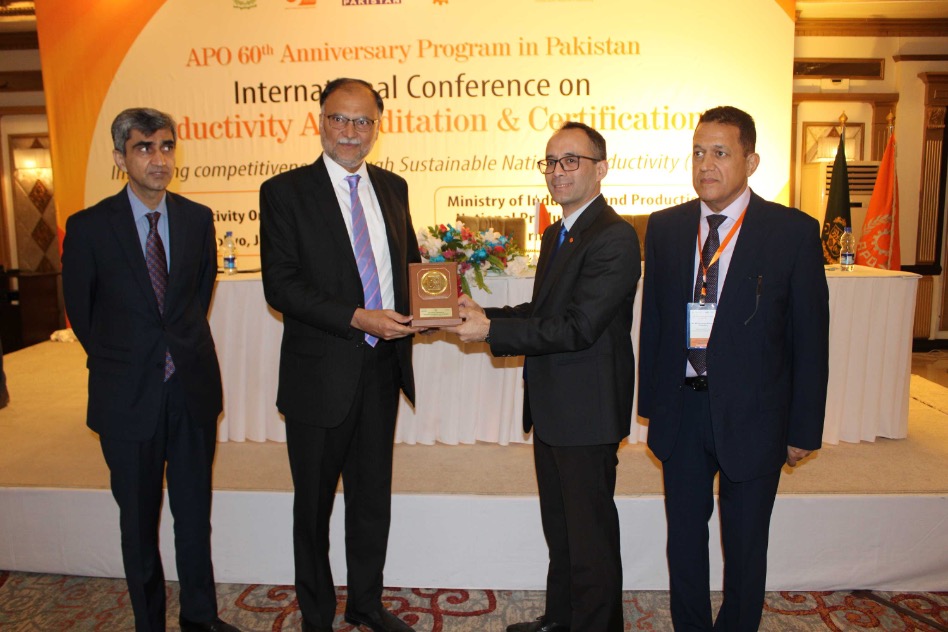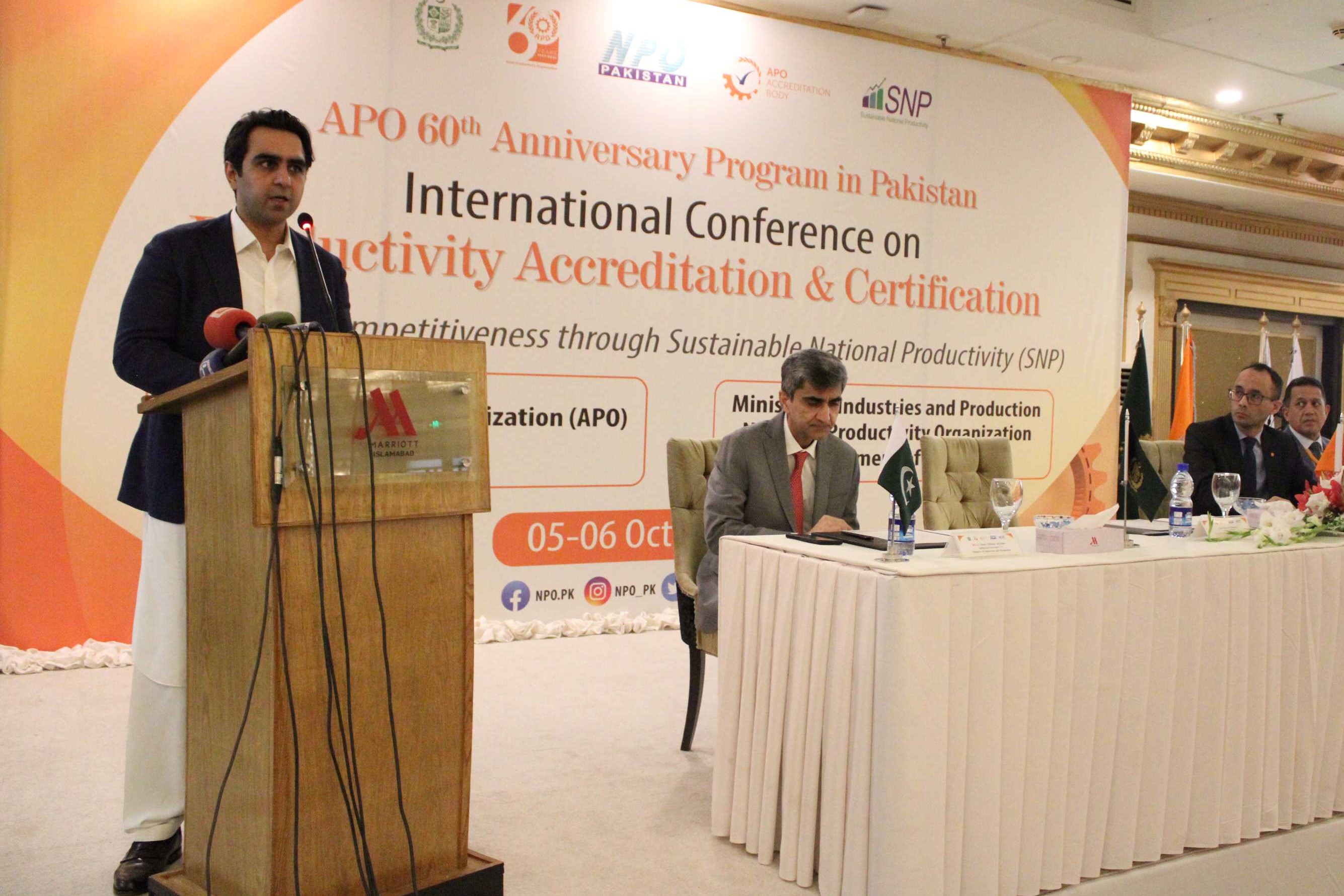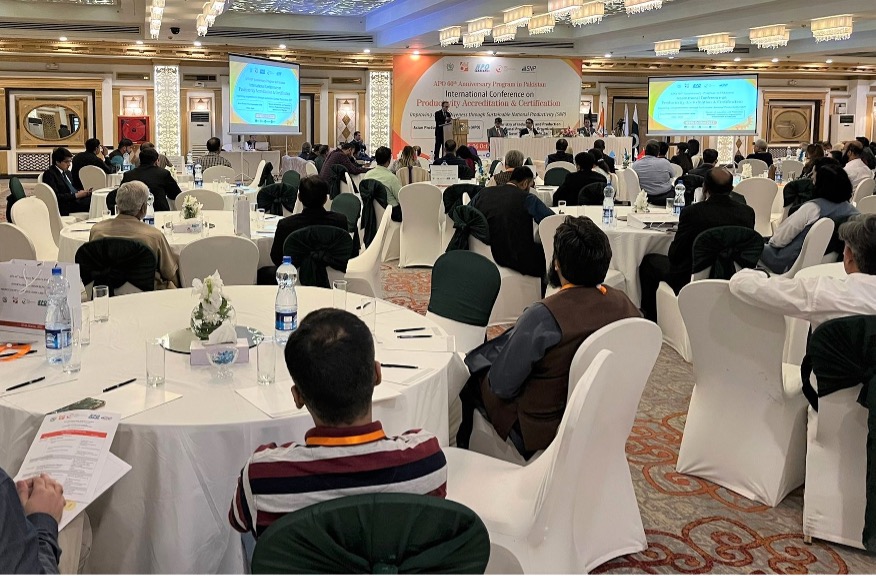
Select Page

As part of the series of events to commemorate the APO’s Diamond Jubilee, an International Conference on Productivity Accreditation and Certification was organized 5–6 October in Islamabad, Pakistan. The conference marked the resumption of in-person activities and was attended by more than 200 participants including 19 from APO members.
The welcome speech by Additional Secretary Iftikhar Ali Sahoo, Ministry of Industries and Production, and APO Alternate Director for Pakistan, highlighted the need for creating an innovative, competitive industrial base in the country to survive successfully in this era of heightened competition.
The opening remarks by APO Secretary-General Dr. Indra Pradana Singawinata summarized the history of the APO from its formal establishment on 11 May 1961. He emphasized the steady growth of the organization in scope and ambition and cited the geographic, economic, and cultural diversity of the current 21 members as a strength as all seek productivity gains through mutual cooperation.

In the keynote address, Pakistan’s Federal Minister for Industries & Production Syed Murtaza Mahmud congratulated the APO on its Diamond Jubilee and stated that since productivity growth was a social process, it was time to involve wider segments of society in the productivity movement. As manufacturing and service hubs are increasingly shifting to Asia, closer networking and coordination among APO members would help to boost productivity in all sectors.
Eight speakers including four from Japan, Malaysia, and the Philippines gave presentations on the latest trends in productivity certification and its role in economic development. The mutual recognition of productivity certification standards is the way forward for APO members to benefit from the important roles of productivity specialists.
Federal Minister for Planning, Development and Special Initiatives Ahsan Iqbal of Pakistan closed the two-day conference. His remarks addressed the importance of continuity and consistency in productivity improvement efforts. He reported that the Government of Pakistan was currently focusing on sustainable industrial growth, skill-based education, human resources development, and technology upgrading to improve the industrial output ratio and contribute to higher economic growth.
